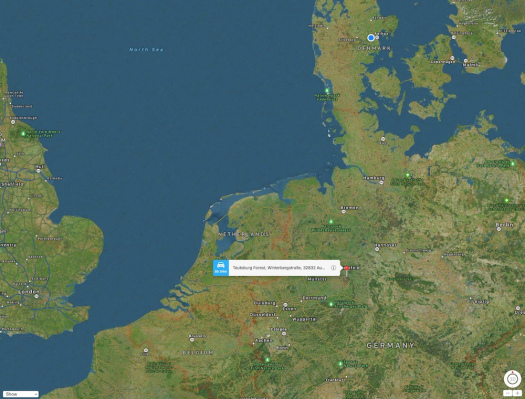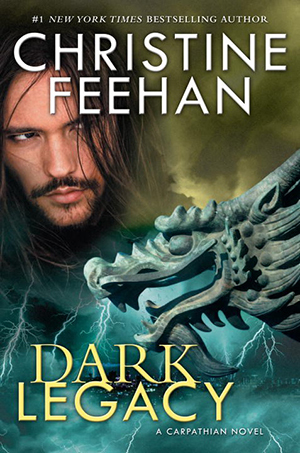 5 of 5 stars
5 of 5 stars
Series: Eagles of Rome 1
My version: Hardback
Historical Fiction Romans, Germanic tribes
Preface, Penguin Random House
2015
Bought, signed
A time for vengeance
AD9, Germania frontier: Close to the Rhine, a Roman centurian, Lucius Tullus, prepares to take his soldiers on patrol. On the opposite side of the river, German tribes are resentful of the harsh taxes about to be imposed upon them. Suspicious that there might be unrest, Tullus knows that his men’s survival will be determined not just by their training and discipline, but by his leadership.
A time for war
What neither Tullus nor his commander, Governer Varus, realise is that ranged against them is the charismatic chieftan and trusted ally of Rome, Arminius, who has long been plotting to drive the Romans from the tribal lands east of the Rhine.
A time to die
As Varus’ legions prepare to leave their summer encampment, thousands of warriors – directed by Arminius – are massing nearby. Eager to throw off the Roman yoke, the tribesmen prepare a deadly ambush.
Only the gods can save the Romans now.
 The Teutoburg forest starts and seems to run south, slightly south east, of the right-hand edge of the name panel. The blue dot up top, is where I live
The Teutoburg forest starts and seems to run south, slightly south east, of the right-hand edge of the name panel. The blue dot up top, is where I live
There’s perhaps only one thing wrong with Eagles at War – it’s not near long enough. I’m maybe a glutton for this kind of punishment, but the battle in the Teutoburg forest, as written by the right honourable Ben Kane here, is insanely tense, down and dirty, life on the line, not knowing from one minute to the next where the arrow, sword or spear with your name on it is coming from, tense.
 Could go either way, clearly
Could go either way, clearly
It is the perennial Historical Fiction problem don’t you think, when you’re writing of an actual recorded event, for which the outcome is known – how do you get it to be tense, thrilling, edge of the seat, when everyone – even those who haven’t seen (or read) a history of the massacre (oops!), like the one called Rome’s Greatest Defeat. No amount of hoping they don’t go into the forest, that the leader isn’t quite so pig-headed, maybe will listen to Tullus and reconsider trusting Arminius, can change the inevitable. For Ben to have done it so well, even reaching towards the class of The Day of The Jackal, speaks volumes for his writing.
Because of Ben’s writerly background and because of us having bought this book to read about Romans, it’s the Romans’ side we’re on. The other lot are trouser-wearing barbarians. To the Romans and to us. However, Ben is excellent in giving the local tribes’ grievances and fears over the coming of the Romans, equal strength. As I understand it, (their leader) Arminius, it wasn’t his birth name, maybe not the name used at the time, but by Ben using the name for him here, it gives an added feeling of treachery to the plot and putting us even more firmly behind the Romans.
There are other characters galore here, on both sides. One leads the way though. And it isn’t Arminius. It’s the Roman Centurian Tullus. Wouldn’t we all hope we’d be just behind him, or someone like him, in this sort of desperate situation? He’s a wonderful creation and I have no doubt he alone could carry the series. Though my personal favourite is Dagmar. I hope he survives!
Then we get to the forest.
 Battle of the Teutoburg Forest – Furor Teutonicus, Paja Jovanović, 1889
Battle of the Teutoburg Forest – Furor Teutonicus, Paja Jovanović, 1889
It’s in the forest Ben’s writing really comes to the fore. He is quite simply superb at putting over the big picture, while also concentrating on the ‘it could have been you and me’ feeling of the boots on the ground Roman soldier. The ‘grunt.’ With the background to the tribes’ motivation put over so adroitly – facing a foreign conquering army, from a long way away, not understanding their local culture, wanting to conquer and subdue, not work with and co-operate, that’s if they absolutely have to be there at all – does that remind you of anything? Any conflict of more recent years? Maybe you have to be of my generation, or with my interests: The Vietnam War.
It’s Vietnam in the forest. No doubt about it. I’ve read many, many Vietnam War books in my time, and even if Ben Kane hasn’t, he certainly comes over as if he has. The claustrophobic, never-ending nerve-shredding unseen menace is the same as described by American soldiers in the forests of Vietnam. And if I’m going to draw a modern parallel with the Vietnam War, then I’m also bound to say my overriding feeling from this book is, separated by 1960-odd years or not – nothing has changed. Read it and see, you’ll agree.
The Speesh Reads Fact Dept. reports: Roman casualties have been estimated at 15,000–20,000 dead, and many of the officers were said to have taken their own lives by falling on their swords in the approved manner. Tacitus wrote that many officers were sacrificed by the Germanic forces as part of their indigenous religious ceremonies, cooked in pots and their bones used for rituals. Others were ransomed, and some common soldiers appear to have been enslaved. Wikipedia
I think a reader might be forgiven for thinking ‘well, why not turn around and go back?’ However, thinking about how Ben has the attacks on the Romans unfold, it could perhaps be inferred that the opening attacks, were small scale to have the Romans believe they were just isolated, maybe opportunist, attacks the army would be able to march on through. And only when they were too far in, to contemplate turning round, did the attacks begin in overwhelming force. This does to me suggest also that the Romans didn’t have an accurate appreciation of the forests size. No local guides or information. And that while the army was spread out to near breaking point along narrow forest paths, no one had any real idea of the situation as a whole. No one riding up and down the lines, though Ben does have a couple of incidents with messengers. Clearly I’m perhaps thinking of it in modern terms, where the back could radio to the front and communicate easily. The Romans didn’t, I think I’m correct in saying, have radios. Then, there’s the face-losing aspect. No Roman leader, as is implied, worth his salt would admit to have made a mistake like going into the forest. So, they had to go on, they couldn’t, physically as well as mentally, turn round.

 If the whole thing is worthy of a trilogy, I think the jury is still out. I have the second two in the series, but haven’t read them as at the time of writing. If you’re looking at just the conflict, the build up to, the march through the forest and the battle, with its immediate aftermath, then a one volume, this book, would do. But no one writes – or commissions, it seems – one-offs these days. Things always seem to be planned as trilogies from the start. I’ll write about this historical event! “Can you get three books out of it? Even if you can’t, do!” Robert Fabbri seems to have written a one volume book on Arminius, which I have yet to read, so I don’t know if that is basically the yin to this’ yang, but certainly it shows that a one-off on this can be done. I just do wish, that authors would announce their new book. Now always, always, announce their new series. How refreshing that would be.
If the whole thing is worthy of a trilogy, I think the jury is still out. I have the second two in the series, but haven’t read them as at the time of writing. If you’re looking at just the conflict, the build up to, the march through the forest and the battle, with its immediate aftermath, then a one volume, this book, would do. But no one writes – or commissions, it seems – one-offs these days. Things always seem to be planned as trilogies from the start. I’ll write about this historical event! “Can you get three books out of it? Even if you can’t, do!” Robert Fabbri seems to have written a one volume book on Arminius, which I have yet to read, so I don’t know if that is basically the yin to this’ yang, but certainly it shows that a one-off on this can be done. I just do wish, that authors would announce their new book. Now always, always, announce their new series. How refreshing that would be.
You can buy Eagles at War from Booksplea.se
Related reviews on Speesh Reads:






